67 items found: Search results for "software development" in all categories x


October 30, 2015 | Software Consultancy
Having completed my marathon 3-talks-in-one-day at JavaOne on Wednesday, I’m now in a position to share all of the slides and supporting material. First up is the content associated with my “Thinking Fast and Slow with Software Development” talk. I’ve already blogged about an earlier version of this presentation on the OpenCredo blog, and so won’t go into more detail here. However, I will include the video recording (thanks to the JavaOne team for this!), the latest version of the slides, and a much requested reading list!


September 13, 2015 | DevOps
Last week I was privileged to be able to present my “Thinking Fast and Slow with Software Development” talk at the inaugural Software Circus conference in Amsterdam. The conference was amazing, and I’ll write more about this later, but in this post I was keen to share the presentation slides and the thinking behind this talk…


August 9, 2017 | Cloud, DevOps, Terraform Provider
The recent 0.10.0 release of HashiCorp Terraform, saw a significant change to the way Providers are managed. Specifically, the single open source code repository for Terraform has been divided into core and multiple provider repositories.


March 7, 2016 | DevOps
Businesses exist to make money; their purpose isn’t just to generate revenue, but to create profits, now and in the future. Generating profits means delivering products or services that people want to buy. The creation of what people want is the entire purpose of delivery pipelines. (NB: The rest of this article will use ‘product’ to refer to both products and services.)


October 31, 2015 | Microservices
Over the past few weeks I’ve been writing an OpenCredo blog series on the topic of “Building a Microservice Development Ecosystem”, but my JavaOne talk of the same title crept up on me before I managed to finish the remaining posts. I’m still planning to finish the full blog series, but in the meantime I thought it would be beneficial to share the video and slides associated with the talk, alongside some of my related thinking. I’ve been fortunate to work on several interesting microservice projects at OpenCredo, and we’re always keen to share our knowledge or offer advice, and so please do get in touch if we can help you or your organisation.






March 14, 2024 | Blog, Data Engineering, Platform Engineering
Watch the recording of our Technical Delivery Director, James Bowkett from the GOTO Copenhagen 2023 conference for his talk ‘The 12 Factor App For Data’
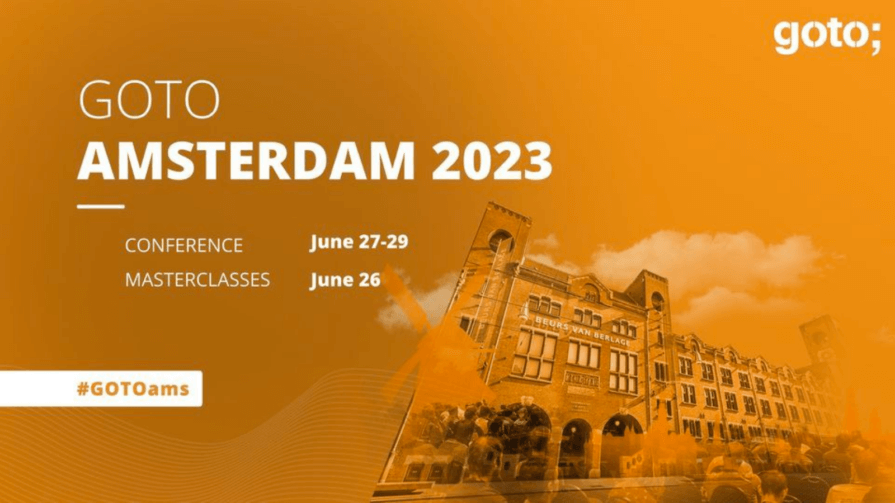

February 1, 2024 | Blog, Platform Engineering
Watch the recording of our CEO/CTO, Nicki Watt from the GOTO Amsterdam Conference 2023 on her talk “Why is it so Hard to Create a Great Platform-as-a-product?”
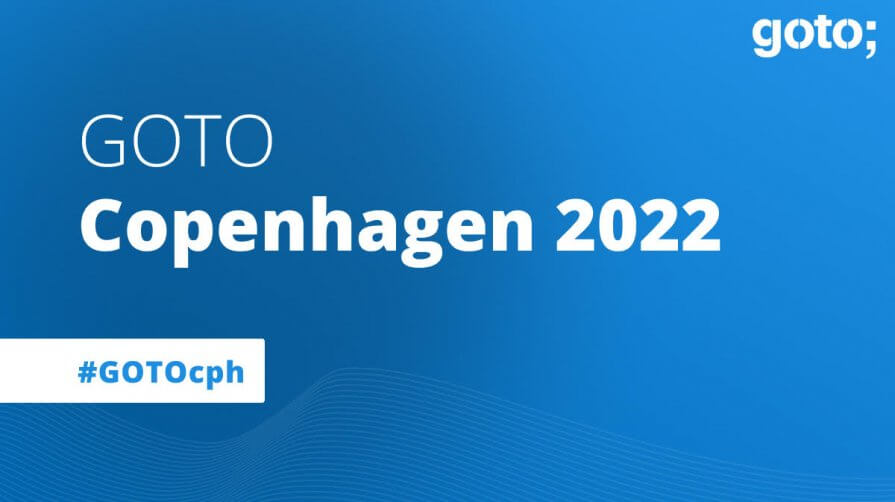

July 6, 2022 | Platform Engineering
Watch the recording of our CEO/CTO, Nicki Watt from the GOTO Copenhagen Conference 2022 on her talk ” From Data Mess —> Data Mesh: Navigating People, Process & Platforms”

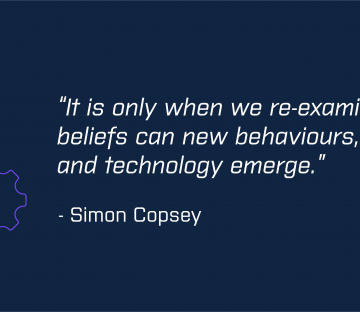
June 29, 2022 | Blog, Organisational Transformation, Software Consultancy
Many businesses advocate for efficiency, but this is not always the right goal.
In part one of this article, we explored how product teams can balance two important considerations – efficiency and effectiveness.
In this second part we will introduce the – often unexpected – implications of turning to technology to bring about efficiency and wider change, and the deeper considerations that must be addressed first.


March 3, 2022 | AWS, Open Source, Software Consultancy
Watch our Lunch & Learn by Hieu Doan and Alberto Faedda as they share how engineers and security teams can secure their software development processes with the Secure Pipelines application.




March 20, 2017 | DevOps
DevOps has swept the tech landscape. Now, many are discovering the benefits of programmable infrastructure. I have been lucky to work on many projects where we’ve taken advantage of tools such as Terraform, Ansible, or Chef.


October 13, 2016 | Data Analysis
In Lisp, you don’t just write your program down toward the language, you also build the language up toward your program. As you’re writing a program you may think “I wish Lisp had such-and-such an operator.” So you go and write it. Afterward you realize that using the new operator would simplify the design of another part of the program, and so on. Language and program evolve together…In the end your program will look as if the language had been designed for it. And when language and program fit one another well, you end up with code which is clear, small, and efficient – Paul Graham, Programming Bottom-Up




July 3, 2016 | DevOps
Several of us from the OpenCredo team were in attendance at the inaugural EU edition of the DevOps Enterprise Summit conference. We have been big fans of the two previous US versions, and have watched the video recordings of talks (2014, 2015) with keen interest as many of our DevOps transformation clients are very much operating in the ‘enterprise’ space.


January 8, 2016 | Microservices
Many of our clients are in the process of investigating or implementing ‘microservices’, and a popular question we often get asked is “what’s the most common mistake you see when moving towards a microservice architecture?”. We’ve seen plenty of good things with this architectural pattern, but we have also seen a few recurring issues and anti-patterns, which I’m keen to share here.


October 18, 2015 | DevOps, Microservices
Once again I’m privileged to be speaking at the premier Java conference, JavaOne in San Francisco. This year I will be presenting (at least) three conferences sessions: “Building a Microservice Ecosystem”, “Debugging Java Apps in Containers” and “Thinking, Fast and Slow, with Software Development”. I say ‘at least’ three talks as I usually get press-ganged volunteered into helping out at other talks and BoF sessions, but this is simply a sign of the great community spirit and a large group of friends involved with this conference!




September 24, 2015 | Microservices
Unless you’ve been living under a (COBOL-based) rock for the last few years, you will have no doubt heard of the emerging trend of microservices. This approach to developing ‘loosely coupled service-oriented architecture with bounded contexts’ has captured the hearts and minds of many developers. The promise of easier enforcement of good architectural and design principles, such as encapsulation and interface segregation, combined with the availability to experiment with different languages and platforms for each service, is a (developer) match made in heaven.






October 23, 2014 | Cassandra
Spring Data Cassandra (SDC) is a community project under the Spring Data (SD) umbrella that provides convenient and familiar APIs to work with Apache Cassandra.


News | November 14, 2013




News | November 24, 2010


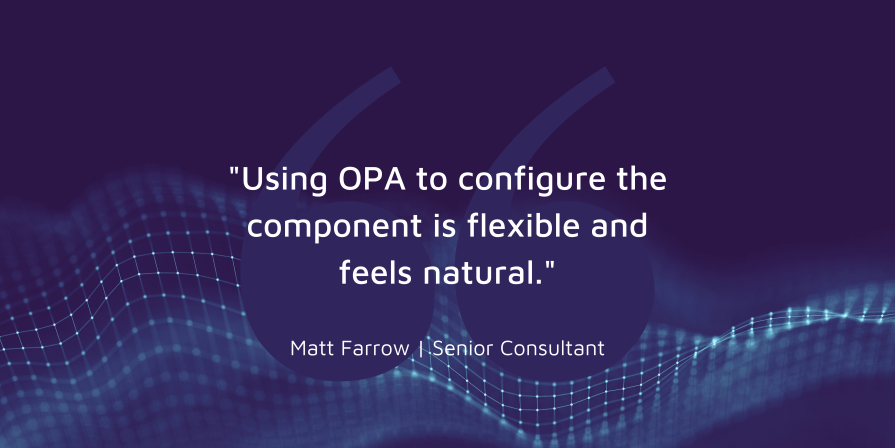
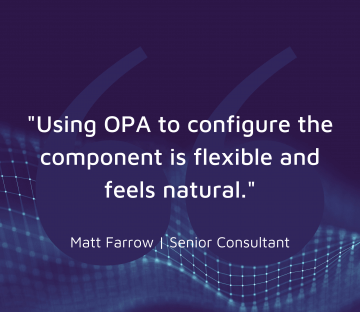
Read Matt Farrow’s blog as he explores the potential for using Open Policy Agent to filter and mask data being sent to and read from Apache Kafka.


June 14, 2022 | Blog, Culture, White Paper
Many businesses advocate for efficiency, but this is not always the right goal. Part one of this article explores how product teams can balance two important considerations – efficiency and effectiveness. Part two builds on this idea, uncovering the non-obvious implications of using technology to bring about efficiency and wider change.

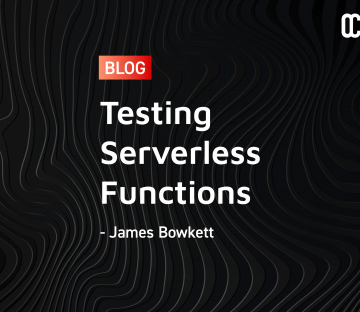
February 11, 2022 | AWS, Cloud, GCP, Kubernetes, Microservices, Open Source, Software Consultancy
Serverless functions are easy to install and upload, but we can’t ignore the basics. This article looks at different strategies related to testing serverless functions.


September 2, 2021 | Blog, Cloud, Kubernetes
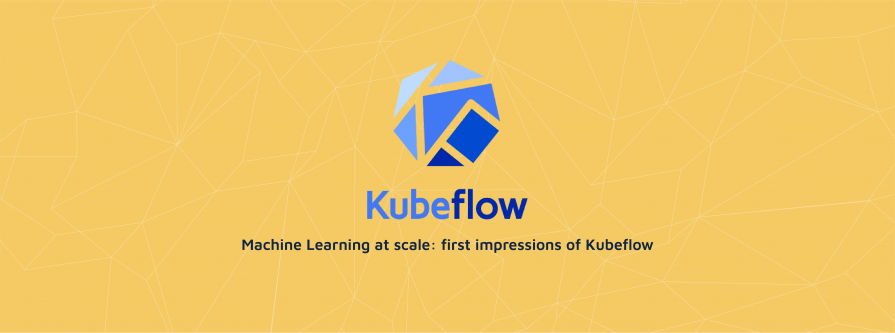
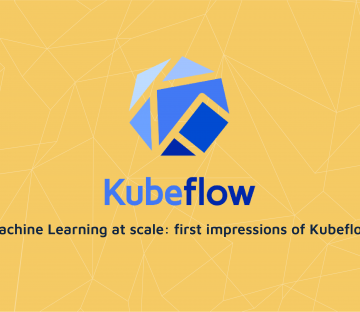
April 20, 2021 | Data Engineering, Machine Learning, Software Consultancy
Our recent client was a Fintech who had ambitions to build a Machine Learning platform for real-time decision making. The client had significant Kubernetes proficiency, ran on the cloud, and had a strong preference for using free, open-source software over cloud-native offerings that come with lock-in. Several components were spiked with success (feature preparation with Apache Beam and Seldon for model serving performed particularly strongly). Kubeflow was one of the next technologies on our list of spikes, showing significant promise at the research stage and seemingly a good match for our client’s priorities and skills.
That platform slipped down the client’s priority list before completing the research for Kubeflow, so I wanted to see how that project might have turned out. Would Kubeflow have made the cut?
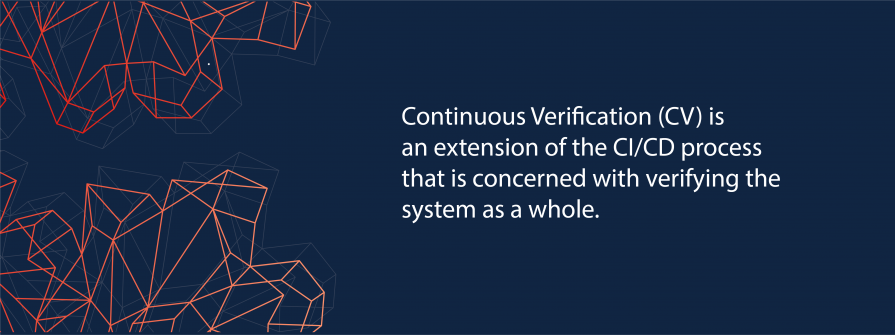
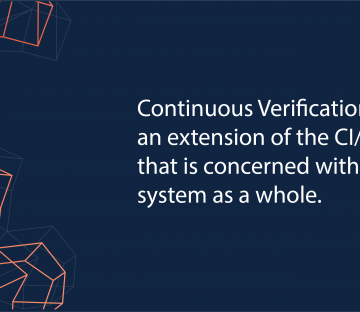
October 15, 2020
Continuous Verification is a term that is starting to pop up from time-to-time… but what does it mean? Well… according to Nora Jones and Casey Rosenthal, authors of O’Reilly’s Chaos Engineering books,
“Continuous verification (CV) is a discipline of proactive experimentation, implemented as tooling that verifies system behaviors. This stands in contrast to prior common practices in software quality assurance, which favor reactive testing, implemented as methodologies that validate known properties of software. This isn’t to say that prior common practices are invalid or should be deprecated. Alerting, testing, code reviews, monitoring, SRE practices, and the like—these are all great practices and should be encouraged”
Over the course of this post, we will unpack this statement: to understand what is behind it and what it might mean for your development process.

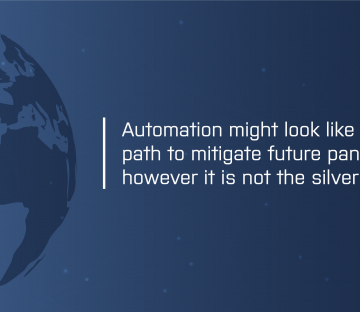
At the time of this post, the UK is making steps to exit from an unprecedented lockdown measures for the Coronavirus. Much of the UK workforce are still making efforts to work-from-home with mainly key workers operating – at risk – in public. Many industries have shut down completely. Consequently, many businesses are reflecting on what happens next and how do we better mitigate future pandemic events?


October 3, 2019
Continuing on from Stuart’s previous blog which covered highlights from CloudNative London conference day 1, I have put together a summary for day 2.
Being an OCer (OpenCredo employee) has given me the opportunity to fully embed myself in the London technology scene. Alongside our direct engagements with clients, it is a chance to understand and evaluate the trends and lessons that have emerged over the past year.
For conferences and technical content, London is a very crowded location. Every day it seems like a new conference is being announced and I know I cannot attend them all, no matter how much I want too! Alongside some of my other colleagues, I was given the option to attend the Skillsmatter CloudNative London conference and with the increase of organisations embracing the dynamic and transformative benefits offered by an ever-growing choice of cloud providers, it seemed like a good fit.


July 31, 2018 | Machine Learning
Machine Learning, alongside a mature Data Science, will help to bring IT and business closer together. By leveraging data for actionable insights, IT will increasingly drive business value. Agile and DevOps practices enable the continuous delivery of business value through productionised machine learning models and software delivery.


July 13, 2018 | Software Consultancy
As a consultant I often find myself in situations that require tricky problem solving, typically of a technical nature. Yet although it is common to approach a consultancy engagement in terms of its technical context, not all problems have a purely technical solution.


May 16, 2018 | Microservices
To identify service boundaries, it is not enough to consider (business) domains only. Other forces like organisational communication structures, and – very important – time, strongly suggest that we should include several other criteria in our considerations.


April 18, 2018 | Microservices
Quite a few of the anti-patterns we observe today on microservices projects are strongly related to how people approach the problem. Given their nature, these anti-patterns tend to be deeply ingrained and self-sustaining. Addressing them starts with increased awareness and by changing ways of approaching the problem, rather than by the introduction of yet another technical tool or framework.


February 14, 2018 | Cloud
AWS Announced a few new products for use with containers at RE:Invent 2017 and of particular interest to me was a new Elastic Container Service(ECS) Launch type, called Fargate
Prior to Fargate, when it came to creating a continuous delivery pipeline in AWS, the use of containers through ECS in its standard form, was the closest you could get to an always up, hands off, managed style of setup. Traditionally ECS has allowed you to create a configured pool of “worker” instances, with it then acting as a scheduler, provisioning containers on those instances.


May 2, 2017 | Cassandra, Data Engineering
My recent blogpost I explored a few cases where using Cassandra and Spark together can be useful. My focus was on the functional behaviour of such a stack and what you need to do as a developer to interact with it. However, it did not describe any details about the infrastructure setup that is capable of running such Spark code or any deployment considerations. In this post, I will explore this in more detail and show some practical advice in how to deploy Spark and Apache Cassandra.


July 8, 2016 | Microservices
OpenCredo recently co-organised the first Microservices Manchester event with OliverBernard recruitment, and it was a resounding success. Over 100 people showed up at the Victoria Warehouse near Manchester’s trendy Salford Quays for a day discussing the realities of implementing microservice systems.


June 15, 2016 | Software Consultancy
It’s as simple as that – and as a consultant, it’s a problem I see all the time. Testing is always focused on functional testing. Non-functional testing, by comparison, is treated like a second class citizen. This means that functional requirements get refined, and non-functional requirements are ignored until the very end.


March 3, 2016 | Software Consultancy
JetBrains (the people behind IntelliJ IDEA) have recently announced the first RC for version 1.0 of Kotlin, a new programming language for the JVM. I say ‘new’, but Kotlin has been in the making for a few years now, and has been used by JetBrains to develop several of their products, including Intellij IDEA. The company open-sourced Kotlin in 2011, and have worked with the community since then to make the language what it is today.


March 2, 2016 | Microservices
Microservice-style software architectures have many benefits: loose coupling, independent scalability, localised failures, facilitating the usage of polyglot data persistence tools or multiple programming languages.
However, they also introduce other challenges. A major one is the fact that the end-user functionality of the system will ultimately emerge as a composition of multiple services. This significantly increases the complexity of deploying the system. In addition, because we lose the concept of “versions” of the system, it becomes harder to answer questions like “what capabilities are in production?” and “when is a new feature considered ‘done’?”.


December 16, 2015 | Cloud, DevOps
In the rush to embrace DevOps, many organisations seek out tools to help them achieve DevOps nirvana; the magical tools that will unify Development and Operations, stop the infighting, and ensure collaboration. This search for tools to solve problems exists in many domains, but seems particularly prevalent in IT (it may be real, or a reflection of my exposure to IT). The temptation to embrace new tools as a panacea is high, because the problems in IT seem so pervasive and persistent.




November 24, 2015 | DevOps, Microservices
It was once again a privilege to present at the annual ‘muCon 2015‘ microservices conference held in London (at the shiny new Skillsmatter CodeNode venue). Based on feedback fro talks I gave earlier in the year, I presented a completely new version of my ‘The Business Behind Microservices‘ talk, which focuses on the organisational and people side of implementing a microservice-based application.


October 30, 2015 | Cloud, DevOps
In some companies, the inevitable rapidly became accepted as the way to do things, and both development and IT operations worked together to figure out how to collaborate on building systems that satisfied development’s desire for change, and operations desire for stability. Outsourcing infrastructure, and all it implied, gave rise to Devops – the unification of business needs, developer delivery, and operational capacity – but it also gave rise to something else, in companies where the operations teams weren’t quite as quick to move – Shadow IT.


October 18, 2015 | Cloud, DevOps
Last week Steve Poole and I were once again back at the always informative JAX London conference talking about DevOps and the Cloud. This presentation built upon our previous DevOps talk that was presented last year, and focused on the experiences that Steve and I had encountered over the last year (the slides for our 2014 “Moving to a DevOps” mode talk can be found on SlideShare, and the video on Parleys).


October 16, 2015 | Software Consultancy
OpenCredo is helping Skillsmatter with the organisation of the inaugural ContainerSched conference, and we were last night in attendance at CodeNode, working our way to finalising the program alongside the Skillsmatter team. I’m pleased to say that the provisional lineup looks great (speaker acceptance emails are being sent out over the next few days), and so I wanted to share the details of some of the great content we have confirmed already.


September 14, 2015 | Cloud, DevOps
If you are operating in the programmable infrastructure space, you will hopefully have come across Terraform, a tool from HashiCorp which is primarily used to manage infrastructure resources such as virtual machines, DNS names and firewall settings across a number of public and private providers (AWS, GCP, Azure, …).


August 11, 2015 | DevOps
For years, OpenCredo has been working with organisations to help them introduce new technologies, and more effective development practices, to their IT teams. This has met with a great deal of success, and we have worked with a variety of companies of various sizes. During these projects, we have consistently noticed that the changes we make reach beyond IT in their impact and effects.




August 5, 2015 | Cloud, GCP, Kubernetes
Why OpenCredo partnered with Google
Recently OpenCredo chose to partner with Google in order to share knowledge and resources around the Google Cloud Platform offerings. Our clients come in many shapes and sizes, but typically all of them realise three disruptive truths of the modern IT industry: the (economic) value of cloud; the competitive advantage of continuous delivery; and the potential of hypothesis and data-driven product development to increase innovation (as popularised by the Lean Startup / Lean Enterprise motto of ‘build, measure, learn’).




March 11, 2015 | Microservices
 One of the pain points experienced with developing microservices is that it often proves too cumbersome to replicate an environment for local development. This usually means the first time an application talks to its “real” dependencies is when it gets deployed to a shared testing environment. A relatively laborious continuous integration process usually precedes this deployment, making our feedback cycle longer than we would like. In this post I describe a workflow that aims to improve that, using Docker and Docker Compose (formerly known as fig).
One of the pain points experienced with developing microservices is that it often proves too cumbersome to replicate an environment for local development. This usually means the first time an application talks to its “real” dependencies is when it gets deployed to a shared testing environment. A relatively laborious continuous integration process usually precedes this deployment, making our feedback cycle longer than we would like. In this post I describe a workflow that aims to improve that, using Docker and Docker Compose (formerly known as fig).


November 21, 2014 | White Paper
In our latest white paper we cover the high level fundamentals of test automation, discuss the primary problems test automation solves and take a look at the steps required to implement this within your development process – all aimed at improving software delivery.
November 19, 2014 | Microservices
Undeniably, there is a growing interest in microservices as we see more organisations, big and small, evaluating and implementing this emerging approach. Despite its apparent novelty, most concepts and principles underpinning microservices are not exactly new – they are simply proven and commonsense software development practices that now need to be applied holistically and at a wider scale, rather than at the scale of a single program or machine. These principles include separation of concerns, loose coupling, scalability and fault-tolerance.


November 6, 2013 | Software Consultancy
In many organisations, development and test teams have a ready answer for this, and that answer is usually wrong. Commonly, teams use test counts and code coverage statistics, which alone are not enough to validate a test approach and run the risk of giving a false sense of security to stakeholders. In practice, we are not able to fully prove the efficacy of our test strategy until after a release. Once software is in use, new defects highlight where our tests are failing to validate the software and where we need to invest effort to improve coverage. This is where many teams fail to learn and improve.


News | February 12, 2013


January 7, 2013 | Software Consultancy
The practice of continuous integration in which build servers are used to build and perform testing of code is now widespread and mainstream.
While not all teams have adopted continuous integration effectively, its increasing adoption has led many to start to look for additional opportunities to improve the cost, quality and speed of delivery with which software targeted to meet business needs can be released into production environments.
Traditionally Continuous Integration addresses the question of “does the software build and pass our unit and integration test suites?”. This is often insufficient.


December 18, 2012 | Software Consultancy
The first thing most people think of when they start a project with the good intentions of test driven development is: write a test first. That’s great, and something I would fully encourage. However, diving in to writing tests without forethought, especially on large projects with a lot of developers can lead to new problems that TDD is not going to solve. With some upfront thinking (but not big upfront design!) a large team can avoid problems later down the line by considering some important and desirable traits of a large and rapidly changing test suite.

